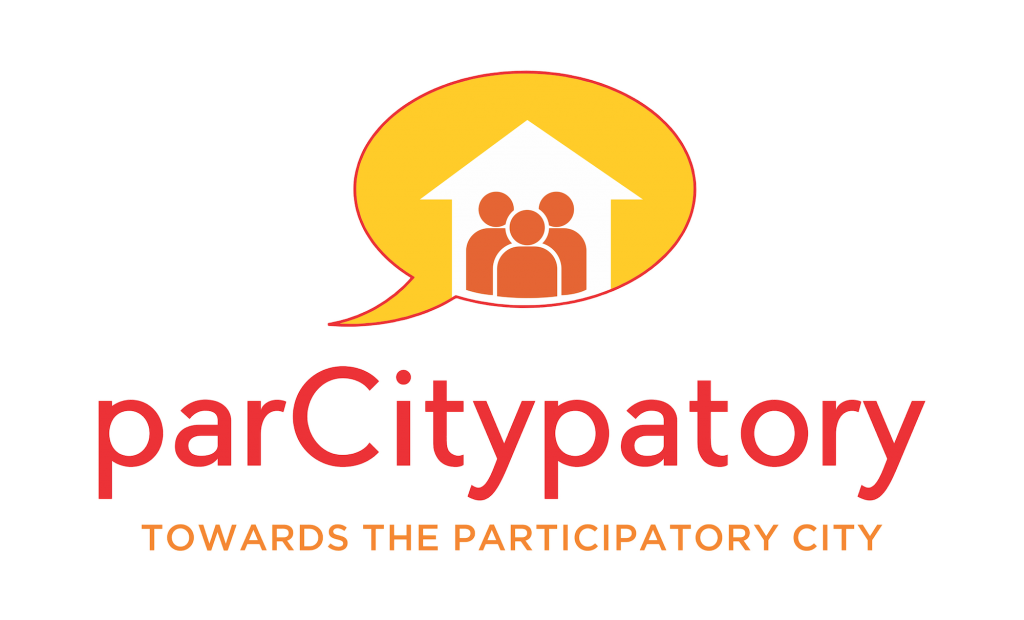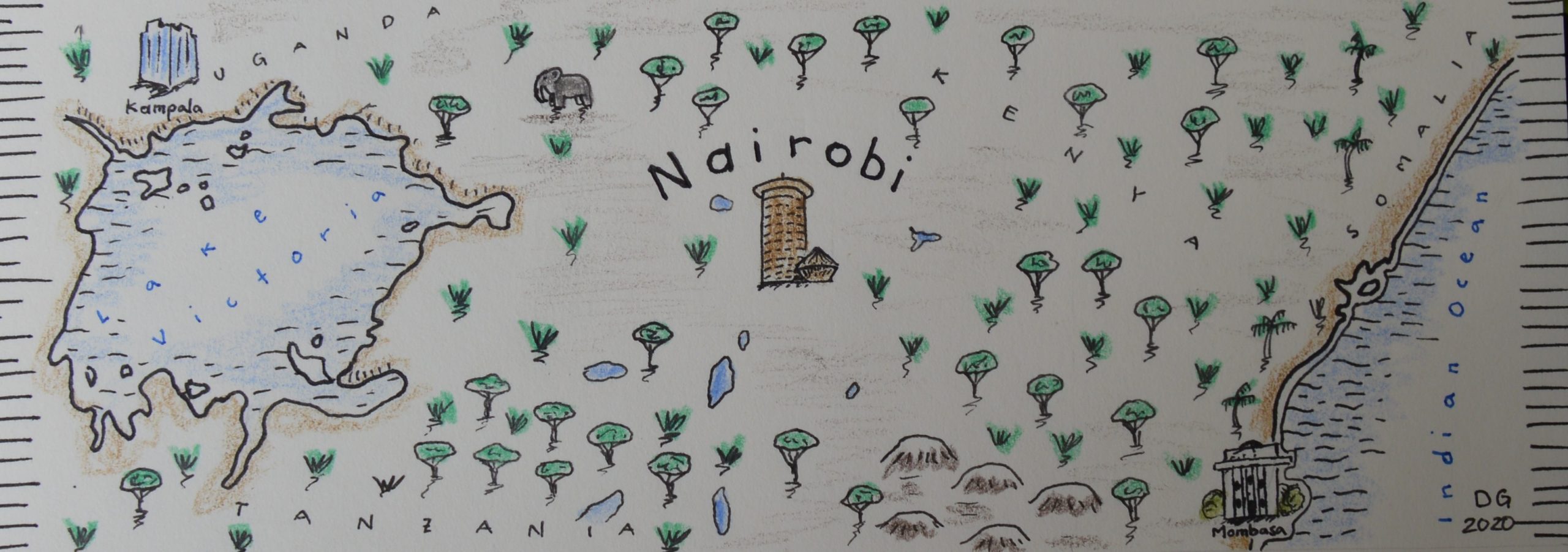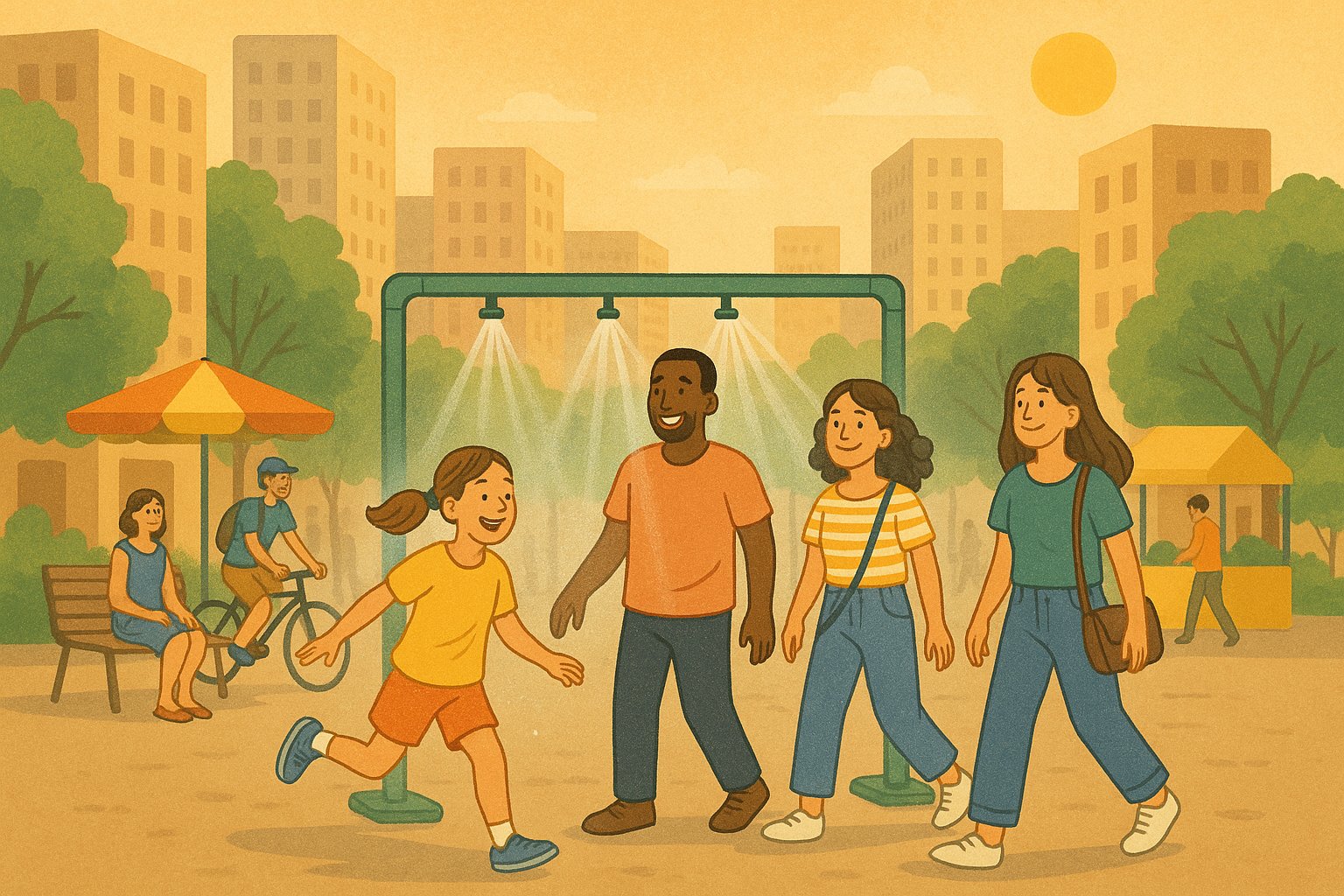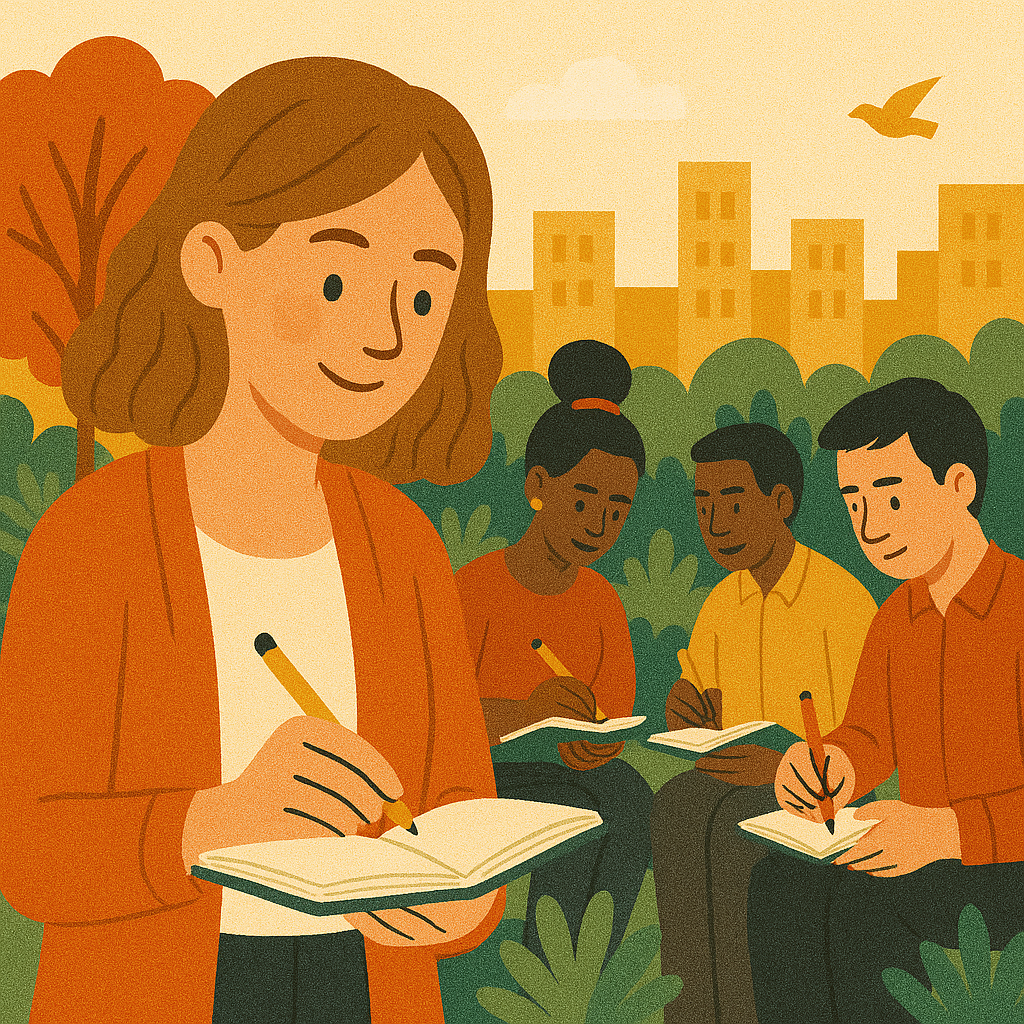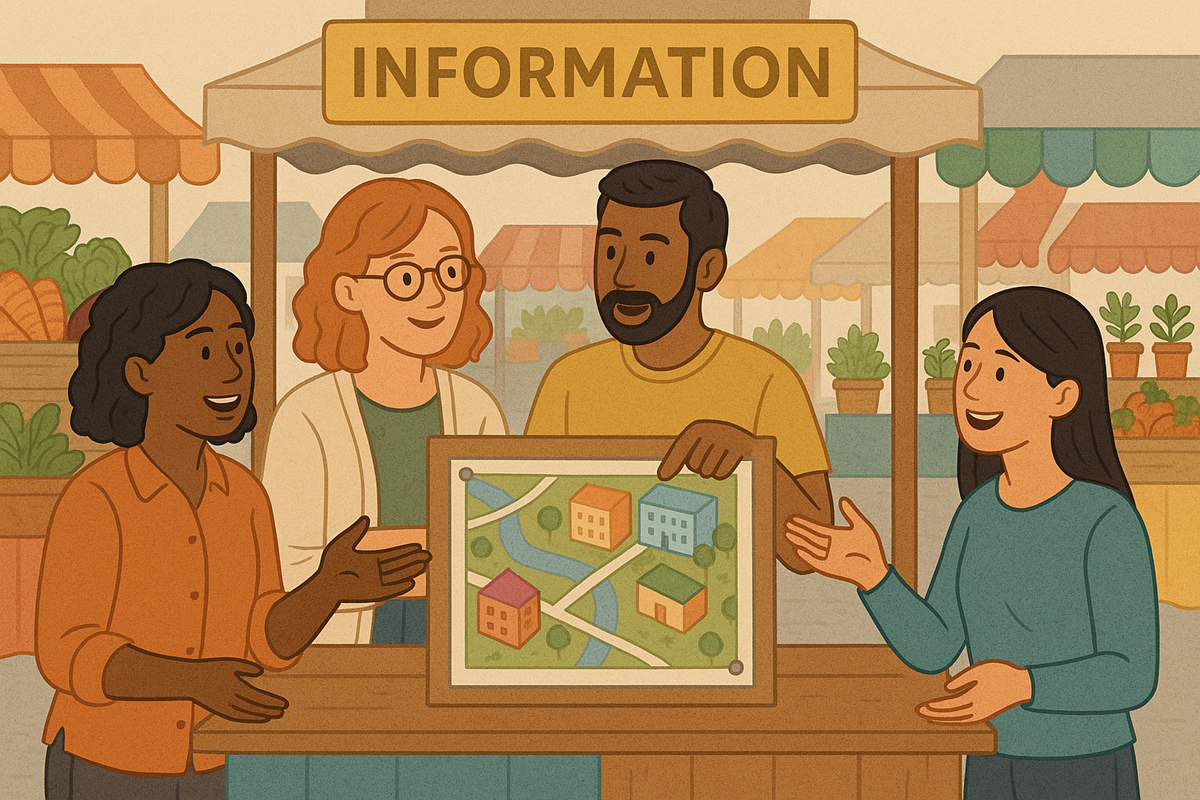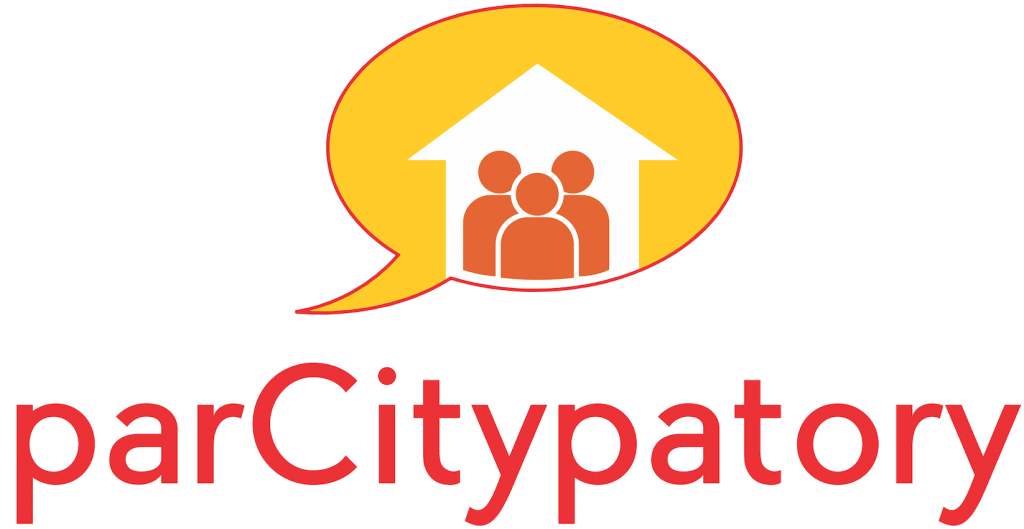Kibera is one of the largest informal settlements on the African continent. It is located in Kenya’s capital city, Nairobi, and has an estimated population of up to 1 million people. I talked to several friends from Nairobi who share their opinion and impression on how such a big informal settlement is dealing with Covid-19. Currently (June 7, 2020), Kenya has had about 2,770 cases of the virus with a death toll of 84. Like many other African countries, it is faring better than Europe and Asia, but there are fears of infections rising drastically soon.
Michelle, Isaac and Lorna, all of them from Nairobi and working in the urban development context, answered these questions for parCitypatory (interviews have been edited slightly):
What are the specific challenges related to Covid-19 in an informal settlement like Kibera?
Michelle: Currently, there is a 7 pm curfew in all of Nairobi in order to stop the virus from spreading. However, many people from Kibera work far away from their homes and therefore cannot make it home on time. Police brutality has been increasing. At the same time, there have been many donations from international organisations to Kenya, such as the sanitising and hand washing stations provided by UN Habitat.
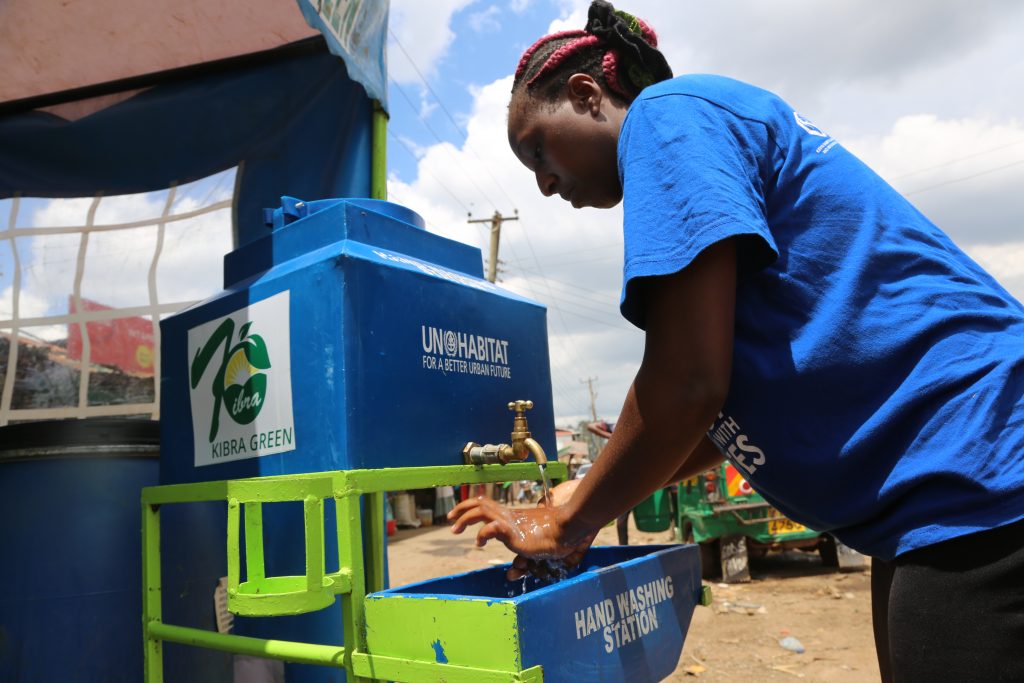
I think there is a lack of honesty with the numbers. There are probably many more cases in Kibera and all of Kenya than we are aware of. Also, people have to pay for their own medical supplies and support, which is incredibly hard for many of them.
The biggest challenge in Kibera is food security. Neighbours and other organisations are coming together in order to provide foodbanks, but it is usually not enough. Since residents struggle more than before Covid-19 to make ends meet, inequality has been renewed and will be very much present and visible in the coming time. Paying rent and sending your children to school are the big challenges. I believe we must see the livelihood of people in informal settlements as an essential service.
Isaac and Lorna: Firstly, access to critical services such as water and sanitation is a big challenge. A vast majority of households are not “directly” connected to water, since most of the water sources are at plot level (most of the plots have about ten households), while sanitary facilities are either provided at plot-level or by private and community-based organisations (pay-before-use facilities).
Further, like other settlements in Nairobi, Kibera experiences water rationing and shortages, and residents depend on buying and storing water in 5-20 litre jerricans. Notably, the supply and cost of water in the settlement is controlled by individuals, and for-profit groups within the settlement. Hence, the cost of buying water to wash hands and sanitize as required to curb the spread of Covid-19 proves quite difficult for the residents of Kibera.
Secondly, density is a big challenge. The settlement has a population density of approximately 95,000 people per square kilometre. Houses are packed. Social distance is a luxury.
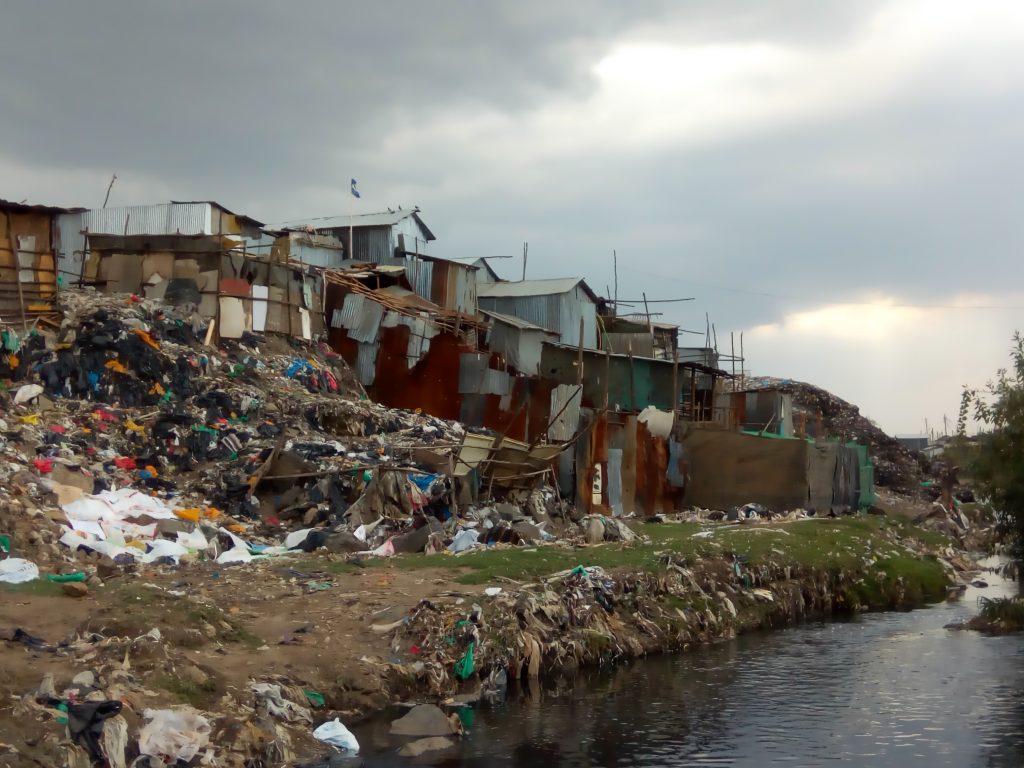
Lastly, I see a lot of economic challenges. The majority of the residents in Kibera earn a daily wage as casual labourers, roadside hawkers, etc. Therefore, staying at home as a measure to curb Covid-19, proves difficult for them. Staying at home means no income is earned for the household.
Do you know what the community in Kibera is doing to protect itself?
Michelle: There are some local solutions. Many new businesses have popped up selling face masks, some of them with beautiful designs. But you can also see people trying on various face masks at the stands, so their whole purpose gets undermined before they are even sold, sometimes. I am also not too sure about their quality.
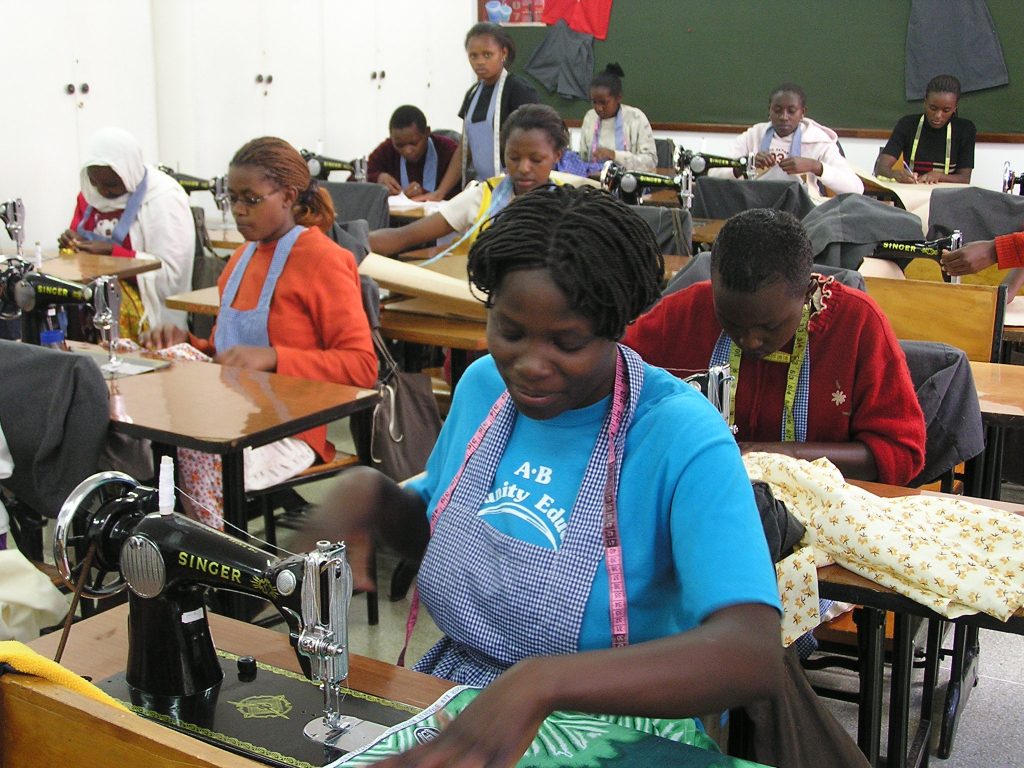
There is neither a resilience nor a natural disaster plan in Kenya, so we have little guidance from the government. I think our way of moving through this pandemic is “blind and planless” – I do not expect to see improvements after this pandemic, neither in Kibera nor in government. Personally, I think the best way forward would be a more complete use of technology. We need to think ahead as a country and be inspired by South Korea, for example.
Elijah Kanyi from Sauti TV also shared a citizen-led solution, involving street art in informal settlements in Nairobi:
Isaac and Lorna: Kibera has been a focal point for many civil society organizations and NGO’s who have been providing information sharing and community education on Covid-19 to the settlement residents.
Further, community health workers and volunteers have also been on the frontline, assisting in community awareness and education.
Masks production by settlement residents has also been on the rise, albeit as an economic opportunity for many. Lots of people have actually resorted to making their own cloth masks. Whether the masks meet the required standards cannot be ascertained.
Grassroots movements such as SHOFCO have come up with various community-based strategies to curb the spread of the virus. One such initiative is setting up handwashing stations across major entry points into the settlement. They also have community health workers who are doing door to door sensitization to raise awareness, as well as distributing soap and hand sanitizers.
What can urban planners do to make informal settlements more resilient to pandemics / to prevent future pandemics?
Michelle: There is no urban development plan for places like Kibera, which also has to do with its history: The land was gifted to the Nubians, who were the original owners. They do not have land title deeds, however, nor do the countless other residents of Kibera who now live there. The government is “planning as it goes”. There are always evictions, displacements and random, spontaneous plans.
I think that there is very little that urban planners can do. A comprehensive resilient system would be most helpful, but we have a long way to go. We do need more washing stations and mask in order to avoid further contagion with the virus. But in the end, the community will not protect themselves over money and a job. I think you can only think of Covid-19 protection once your basic needs are covered. Hunger, housing insecurities and lack of money are much scarier than Covid.
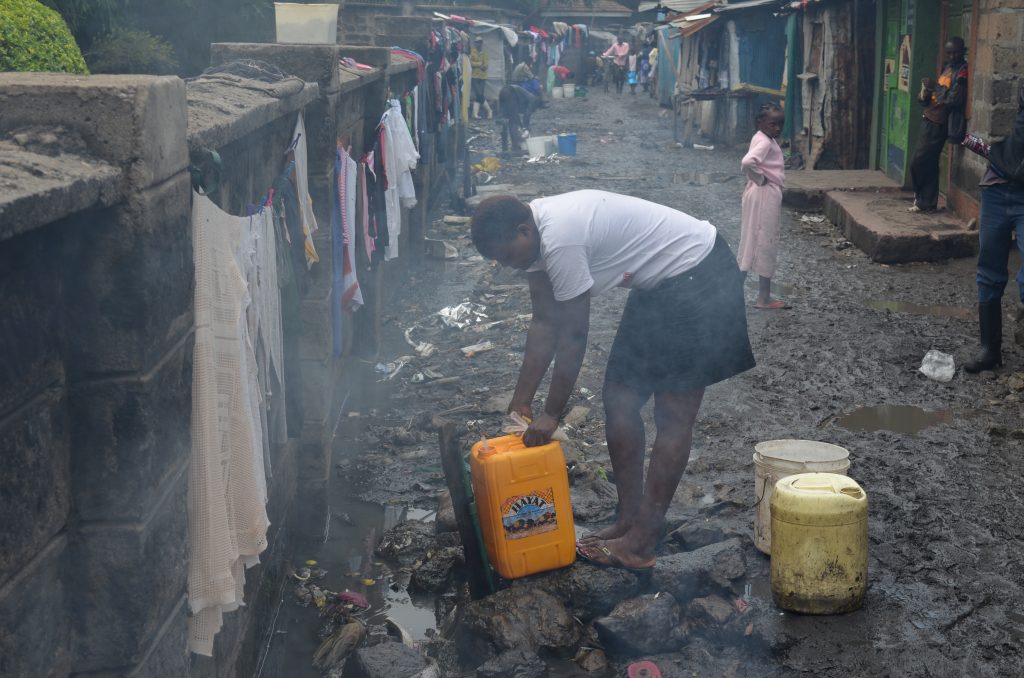
Isaac and Lorna: Firstly, we need to get facts and figures right. The first step towards achieving resilience is addressing the glaring data gap when it comes to population in Kibera informal settlement. This includes number of people, households, houses/structures and critical amenities and services available.
It is difficult to come up with a disaster response plan without the knowledge of the exact number of people living in the settlement. Therefore, there should be a database with details of all households, which should be regularly updated.
Secondly, it is crucial to quit the “slum stereotype”. Sadly, the narrative that Kibera and other informal settlements are “havens of physical, environmental and social degradation and evils” has been upheld by many urban planners, and as such, informal settlements in Nairobi have not been recognized in the city’s master plan, city planning guidelines or standards.
Additionally, previous plans and initiatives for upgrade and development of informal settlements such as Kibera have been largely unsuccessful, mainly due to lack of standards and guidelines that are in tandem with the existing situation and realities in the informal settlements.
Realization that residents of informal settlements have the right to the city as much as residents in formal estates and settlements is a big step towards seeking sustainable solutions for making the informal settlements (and the city as a whole), resilient.
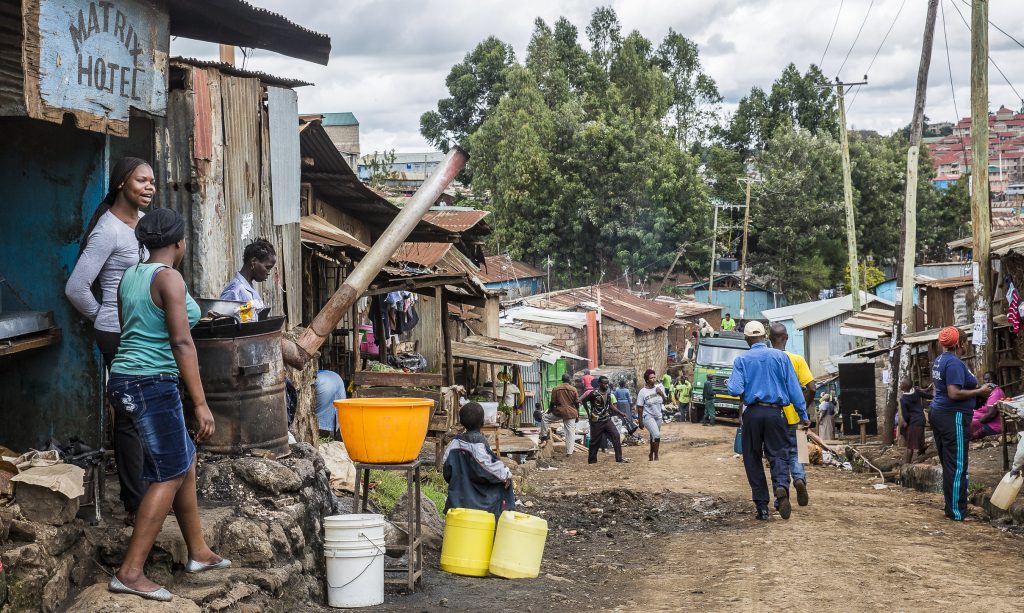
Are settlements like Kibera used to having diseases going around?
Michelle: Yes, this is not the first epidemic. There have been other outbreaks, such as typhoid fever, but in essence, the problem stays the same: People have other things to worry about. Measures such as social distancing remain a myth do to the life situation in Kibera. I do think, however, that we all take Covid-19 very seriously. There is a lot of effective communication and community organisations such as SHOFCO do great work.
More than past disease outbreaks, Covid-19 has highlighted the deeper issues in informal settlements such as Kibera. For example, only 6% of Kenya’s budget goes to health. The education budget is decreasing, although we are now more dependent than ever on these two budgets. There is also a lacking plan for street kids and for the homeless. Missing access to health care, sexual crimes, domestic violence and a very bad sanitary situation are problems that the pandemic is only exacerbating.
Isaac and Lorna: Yes, the constant state of pandemic is there. This doesn’t come as a surprise due to the settlement density and the challenge of access and provision of critical services and amenities.
Thank you very much!
You might also be interested in these related articles:
I also interviewed my friend, Justice Nwafor, about the situation in Nigeria. In this article, he talks about the bleak situation in informal settlements in Ibadan, Nigeria’s second-largest city.
To end on a positive note, watch this video by Sauti TV on how a local activist supports her community in Mathare, Nairobi:
